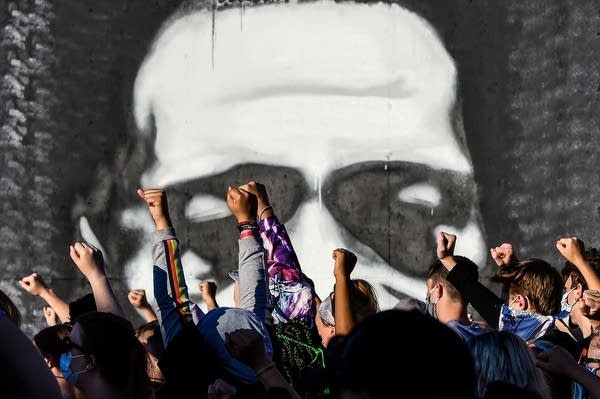How are you reacting to findings of racism in the Minneapolis Police Department?

Go Deeper.
Create an account or log in to save stories.
Like this?
Thanks for liking this story! We have added it to a list of your favorite stories.
A human rights investigation into the Minneapolis Police Department concluded that the overarching culture at the Minneapolis Police Department encouraged a “pattern or practice of racial discrimination.”
The two-year investigation was launched in June 2020 after the murder of George Floyd and conducted by the Minnesota Department of Human Rights. The sweeping findings, released on April 27, describe flawed training that emphasizes a paramilitary approach to policing and city and department leadership that does not hold officers accountable for misconduct.
Overall, Black residents in Minneapolis are more likely to be treated aggressively by police officers and almost twice as likely to be pulled over and searched while driving, compared to white citizens in similar circumstances.
The report also describes how Minneapolis officers created fake social media accounts to monitor and engage with Black individuals and Black organizations, outside of any criminal investigation and for no public safety reason.
Turn Up Your Support
MPR News helps you turn down the noise and build shared understanding. Turn up your support for this public resource and keep trusted journalism accessible to all.
On Monday, MPR News host Angela Davis spoke about reactions to the findings and possible next steps.
Guests:
Matt Sepic is a MPR News correspondent.
Angela Rose Myers is former president of the Minneapolis NAACP and currently serves as co-chair of the organization’s political action committee.
Steve Belton is president and CEO of the Urban League Twin Cities.
Kami Chavis is a nationally known criminal justice expert and a law professor at Wake Forest University in N.C. She is transitioning into a new role as founding director of the Center for Criminal Justice Policy and Reform at William & Mary in Virginia.
Subscribe to the MPR News with Angela Davis podcast on: Apple Podcasts, Google Podcasts, Spotify or RSS.
Hear their conversation using the audio player above and read the highlights below.
“Our investigation identified that there has been a vacuum of collective action, of collective sustained action, from key city and MPD leaders. And the organizational culture at MPD has existed unchecked, resulting in unlawful discriminatory policing. It undermines public safety and it's been going on for at least the past decade,” said Rebecca Lucero, Commissioner at the Minnesota Department of Human Rights.
Steve Belton shared his reactions to findings that Black residents of Minneapolis are more often stopped and arrested. “All of these things are racially driven. And this report provides really irrefutable evidence that that’s occurring. And it was alarming. And it made me very angry,” he said.
The investigation included a review of hundreds of hours of body camera footage, thousands of interviews with community members and police officers, and years of reports. It also revealed officers’ use of racist, sexist, dehumanizing language against Black and Somali American men, members of the community and other officers, MPR News reporter Matt Sepic confirmed.
Chavis said the culture within the Minneapolis Police Department must be addressed: “If you have those officers within the department that know this is happening, and they see that others are able to get away with it, why would they act any differently? Why would they bother to tell a superior about the behavior if they're only going to be retaliated against, and, and the other person, not punished? This is where accountability comes in.”
A consent decree will help to establish a framework, she said, whereby members of the MPD are held accountable for their actions. Actions could include discipline, dismissal or retraining officers where appropriate, Chavis added.
Alongside police reform, Angela Rose Myers is focused on improving access to resources for those who need assistance with mental health, drug use, employment and housing. She said that to strengthen the local community, police outreach and enforcement is not enough.
“Maybe they shouldn't be taking on these tasks, handling issues within schools, within families, things like that,” she said. “Maybe they shouldn't be the ones that are our sole providers of saving our community.”


